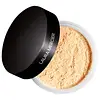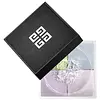Laura Mercier Translucent Loose Setting Powder Versus Givenchy Prisme Libre Setting and Finishing Loose Powder
What's inside
What's inside
 Key Ingredients
Key Ingredients

 Benefits
Benefits

 Concerns
Concerns

 Ingredients Side-by-side
Ingredients Side-by-side

Talc
AbrasiveMagnesium Myristate
Nylon-12
Caprylic/Capric Triglyceride
MaskingEthylhexyl Palmitate
EmollientZea Mays Starch
AbsorbentAscorbyl Palmitate
AntioxidantTocopherol
AntioxidantLauroyl Lysine
Skin ConditioningPolymethyl Methacrylate
Methicone
EmollientSodium Dehydroacetate
PreservativeMethylparaben
PreservativePropylparaben
PreservativeButylparaben
MaskingIron Oxides
CI 19140
Cosmetic ColorantCI 77007
Cosmetic ColorantTalc
AbrasiveSynthetic Fluorphlogopite
Silica
AbrasiveDimethicone
EmollientCaprylyl Glycol
EmollientPentylene Glycol
Skin ConditioningPhenyl Trimethicone
Skin ConditioningHdi/Trimethylol Hexyllactone Crosspolymer
Sodium Dehydroacetate
PreservativeDiisostearyl Malate
EmollientOctyldodecyl Stearoyl Stearate
EmollientTocopheryl Acetate
AntioxidantParfum
MaskingSorbitan Sesquioleate
EmulsifyingGeraniol
PerfumingBHT
AntioxidantTocopherol
AntioxidantCI 77491
Cosmetic ColorantCI 77288
Cosmetic ColorantCI 19140
Cosmetic ColorantCI 77007
Cosmetic ColorantCI 77742
Cosmetic ColorantCI 77891
Cosmetic ColorantTalc, Synthetic Fluorphlogopite, Silica, Dimethicone, Caprylyl Glycol, Pentylene Glycol, Phenyl Trimethicone, Hdi/Trimethylol Hexyllactone Crosspolymer, Sodium Dehydroacetate, Diisostearyl Malate, Octyldodecyl Stearoyl Stearate, Tocopheryl Acetate, Parfum, Sorbitan Sesquioleate, Geraniol, BHT, Tocopherol, CI 77491, CI 77288, CI 19140, CI 77007, CI 77742, CI 77891
 Reviews
Reviews

Ingredients Explained
These ingredients are found in both products.
Ingredients higher up in an ingredient list are typically present in a larger amount.
CI 19140 is also known as Tartrazine. Tartrazine is a synthetic dye used in cosmetics, foods, and medicine to add a yellow color.
Tartrazine is created from petroleum and is water-soluble.
Some people may experience allergies from this dye, especially asthmatics and those with an aspirin intolerance.
Learn more about CI 19140This pigment is called Ultramarine blue lazurite. It gives a saturated blue color, but can be used to create other colors as well.
According to the manufacturer, it is usually made from kaolin, sodium sulfate, sodium carbonate, sulfur, and charcoal.
This ingredient is a preservative with antimicrobial properties. It is the sodium salt of dehydroacetic acid.
It is especially effective at preventing bacterial and fungal growth in low concentrations.
Talc is a clay mineral. It helps absorb moisture and improve the texture of products. Like other types of clay, Talc can have a slight exfoliating effect on skin. Talc can be added to increase the volume of products.
Some Baby powders are made by combining talc with corn starch. The word "talc" comes from Latin and originates from Arabic. Talc is a mineral commonly found throughout the world.
If you have any concerns about using talc, we recommend checking out the FDA's official page.
Learn more about TalcTocopherol (also known as Vitamin E) is a common antioxidant used to help protect the skin from free-radicals and strengthen the skin barrier. It's also fat soluble - this means our skin is great at absorbing it.
Vitamin E also helps keep your natural skin lipids healthy. Your lipid skin barrier naturally consists of lipids, ceramides, and fatty acids. Vitamin E offers extra protection for your skin’s lipid barrier, keeping your skin healthy and nourished.
Another benefit is a bit of UV protection. Vitamin E helps reduce the damage caused by UVB rays. (It should not replace your sunscreen). Combining it with Vitamin C can decrease sunburned cells and hyperpigmentation after UV exposure.
You might have noticed Vitamin E + C often paired together. This is because it is great at stabilizing Vitamin C. Using the two together helps increase the effectiveness of both ingredients.
There are often claims that Vitamin E can reduce/prevent scarring, but these claims haven't been confirmed by scientific research.
Learn more about Tocopherol